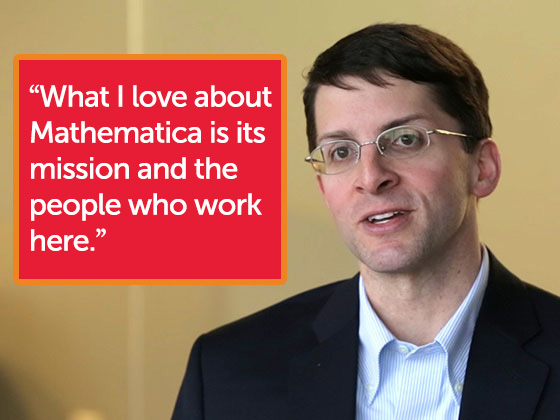 Mathematica Policy Research is committed to rigorous research to support programs and policies designed to ensure a nutritious diet, food security, and healthy levels of physical activity for all Americans. To mark National Nutrition Month, Mathematica offers a two-part retrospective on some of the most important research on nutrition assistance programs that we’ve conducted over the past several decades. In this second installment, we link to a data visualization that illustrates the changing fat and saturated fat content of school lunches over several decades, based on updated nutrition standards that were informed by our work. A Mathematica expert discusses, via video, critical research on food access, including Mathematica’s evaluations of SNAP participants’ food spending and food security. Earlier this month, we looked back on more than 40 years of microsimulations, which have informed critical policy decisions for the Supplemental Nutrition Assistance Program.
Mathematica Policy Research is committed to rigorous research to support programs and policies designed to ensure a nutritious diet, food security, and healthy levels of physical activity for all Americans. To mark National Nutrition Month, Mathematica offers a two-part retrospective on some of the most important research on nutrition assistance programs that we’ve conducted over the past several decades. In this second installment, we link to a data visualization that illustrates the changing fat and saturated fat content of school lunches over several decades, based on updated nutrition standards that were informed by our work. A Mathematica expert discusses, via video, critical research on food access, including Mathematica’s evaluations of SNAP participants’ food spending and food security. Earlier this month, we looked back on more than 40 years of microsimulations, which have informed critical policy decisions for the Supplemental Nutrition Assistance Program.
Data visualization on changing fat and saturated fat content in school nutrition programs
The U.S. Department of Agriculture administers two school meals programs—the National School Lunch Program and the School Breakfast Program. For more than 20 years, Mathematica has studied the nutritional quality of meals offered to students and the dietary intakes of program participants through a series of School Nutrition Dietary Assessment studies. Study findings, as well as developments in federal nutrition guidance, have had a dramatic influence on the nutrition standards used in planning school meals and in the nutritional quality of those meals. Mathematica is continuing its important work in this area through the School Nutrition and Meal Cost Studies, which provide evidence about the nutritional quality and cost of school meals after implementation of the most recent nutrition standards.
To learn more about changes in school lunches and how Mathematica’s work has documented and contributed to these changes, explore this data visualization.
Expert discusses food security and food access
Mathematica’s work on food security and food access for low-income households and other vulnerable populations has helped move the policy needle over the past several decades. In a short video, Associate Director James Mabli discusses this issue and describes Mathematica’s ongoing role in helping to inform the policy discussion with evidence-based research, innovative geospatial data analytics, and expert analysis.

